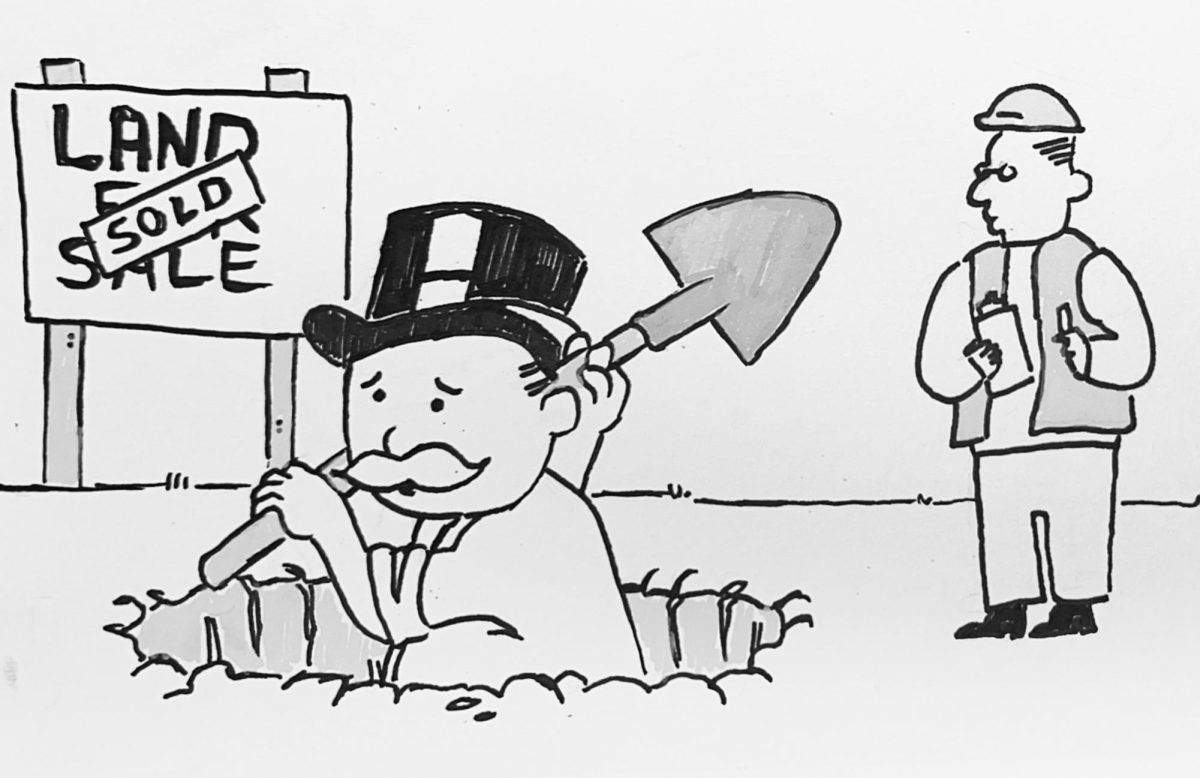When people think of China, one of the things that pops into their heads is communism. In America, there is uneasiness when we hear the word communism. Though the feeling is not as pronounced as in the Cold War Era, it still exists in trace amounts.
A popular notion of communism envisions people living a bare existence and working and sacrificing for the sake of a communist (and possibly evil) government. This is true for some communist societies, like North Korea, where people can barely get food or running water.
Communist China, however, gives us a different picture. With a capitalist economy and a communist government, China isn’t strictly communist. In a way, “communist China” is a mislabel. The ideas of communism stem from Karl Marx’s “Communist Manifesto.” In it, he says that the goal of communism is to create a better society by eliminating capitalism. So China’s government is only communist in name. A communist government with a capitalist economy violates Marx’s definition of communism.
If China isn’t a communist country, what kind of place is it? It’s much like America. When you look through a big Chinese city, it might look like an American one. It’s a sprawling metropolis with stores, eateries and private businesses. The businesses and stores are no longer run by the state; they are run by Chinese capitalists.
When we look at how the Chinese deal with government, we see even more similarities between China and America. In America we have the right to participate in our government, but we often don’t do that. Several years ago, there was a poll that showed that more people voted in American Idol than in the presidential election. In America, we have the right to challenge our government, but often don’t do it. If the Chinese could challenge their government, would they?
Of course there are exceptions in both China and in America, but by and large, those who protest constitute a small minority. Chinese and Americans who don’t protest might disagree with what the government does, but they don’t always act on their feelings because they are content with their lives. Their needs are met and they are free to indulge in consumerism.
Capitalism and consumerism are what make China similar to America. They satisfy our desire for material goods and drive trends in popular culture. After China opened up to the West during the Nixon administration, the Chinese were gradually exposed to more and more Western consumer goods. Capitalism and material goods have enticed Chinese people to participate in a consumer lifestyle, where people buy trendy clothes and wait in line for iPhones and iPods. This consumer lifestyle is driven by trends in the West. A lot of our trends later become their trends. When you go to Taiwan or China, you will hear people dancing to tunes that were big in America several years prior. When you eat in China, the most popular fast food is KFC.
In the future, as China continues to develop, popular culture and culture in general will seem more and more like America’s. China has become less and less alienated from the West and is now America’s biggest trading partner. Differences will blur and eventually the only thing that will separate us from them will be, assuming we don’t speak Chinese, a language barrier.









A Fellow Comrade • Jan 12, 2012 at 9:46 am
Sir,
Leaving aside your reactionary rhetoric that for some reason equates “evil” with the process of establishing a wholly egalitarian society at all levels — social, economic, political, etc. — you seem to have been taught Marx’s “Communist Manifesto” by either a second-grader (i.e. someone only just learning how to read) or an idealogue that doesn’t want to read. According to Marx, China is presently practicing the definition of communism. Before Mao, China was largely made up of peasants. The Cultural Revolution initiated the process of turning that nation into a full-fleged capitalist society while maintaining State control. This is its present, but still developing state. Marx was not an idealogue, but an economist/sociologist who believed that societies had to transition from peasant-based to capitalist-based economies before the latter eventually destroyed itself owing to its internal contradictions. Only then would it be possible to live in a communist society. If China is to remain Marxist in its communism, then it would attempt to fully develop capitalism in such a way that its internal contradictions would more swiftly lead to its demise. Then, once capitalism is abolished, the Chinese state would wither away and we would arrive at what one could call a communist society. I strongly suggest you leave your Western (capitalist, colonialist, racist, etc.) prejudices behind and reread Marx if you’d like to understand his version of communism.
Cheers,
A Fellow Comrade